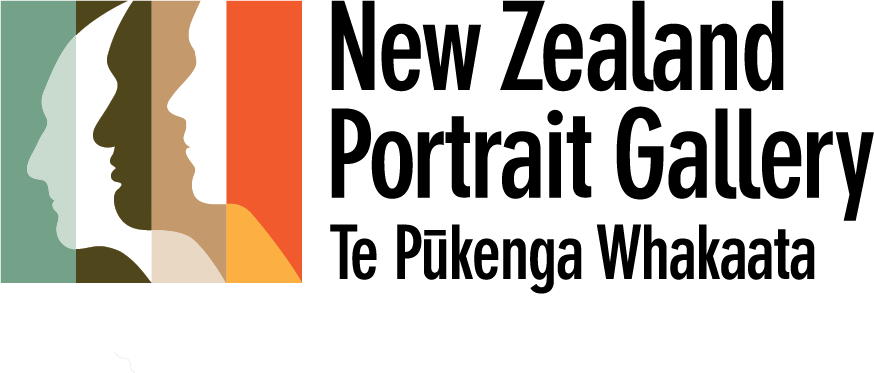Kia ora teachers!
Join us for an evening event of wānanga in our exhibition He Riri Awatea: Filming the New Zealand Wars.
How can we tautoko each other and our rangatahi while teaching the history of Ngā Pakanga o Aotearoa, The New Zealand Wars?
The New Zealand Portrait Gallery Te Pūkenga Whakaata is hosting panel of speakers to share their knowledge of the New Zealand Wars and; decolonial teaching methods and to discuss how to deliver this historical content in a respectful, intersectional way that cares for and empowers Tangata whenua, Mātauranga Māori, Pākehā and Tau iwi.
All levels of teaching welcome.
We invite you to join us to listen to experts and ask questions about the New Zealand Wars in a safe and inclusive environment.
Key discussion points of the evening:
- Introduction to The Films of the NZ wars as a way of learning and teaching our history
- Some approaches to teaching colonial history in a decolonial way
- Ways to enable cultural safety and hauora hinengaro while teaching NZ Wars content
- Patai and discussion
Afterwards, we invite you to get to know each other, have a glass of wine and a nibble.
Our Panelists:
Annabel Cooper: Co-Curator of He Riri Awatea: Filming the New Zealand Wars. Most of Annabel’s research centers on cultural history and cultural politics – of gender, place and racial conflict. Annabel is exploring the ways in which the New Zealand Wars have been established in cultural memory. Much of this study has looked at screen narratives, culminating in the book Filming the Colonial Past: The New Zealand Wars on Screen
Mike Ross: is a Lecturer at Te Kawa a Māui, Mike started at Victoria University of Wellington in 2011. Prior to that he worked for many years as a youth and community worker and during that time he also studied at Victoria University of Wellington and then at Te Wānanga o Raukawa
Liana MacDonald: Liana MacDonald (Ngāti Kuia, Rangitāne o Wairau, Ngāti Koata) is a lecturer in the Faculty of Education, Victoria University of Wellington. She is interested in how racism, whiteness, and settler colonialism manifest in national institutions. Her current research explores possibilities for decolonial transformation in schools, particularly through land education.
Lachy Paterson: is a professor in the Te Tumu: School of Māori, Pacific and Indigenous Studies, University of Otago. Although currently working with Angela Wanhalla on Te Hau Kāinga, a research project on the Māori Home Front during World War Two, much of Lachy’s research to date has investigated Māori-language print culture, and nineteenth-century Māori social and political history. As part of his duties at Otago, Lachy teaches MAOR310, Ngā Pakanga Nunui: New Zealand Wars.
Exhibition summary:
The New Zealand Wars Ngā Pakanga Nunui o Aotearoa were major events in our history, and their impact continues today. From the early days of the film industry, filmmakers recognised their national significance – and their dramatic potential, from Hone Heke Pōkai's flagpole-chopping to Riwha Tītokowaru's decoy-and-ambush strategies.
The Wars are a compelling but contested subject. Māori and Pākehā often remember them differently, and with varying emotions. Many iwi have their own kōrero about the wars that affected them too.
This exhibition explores two stories. First, the films reflect a century in which perspectives on the Wars and colonisation in Aotearoa New Zealand underwent enormous change. Each generation of filmmakers brought new attitudes and historical knowledge. The films reflect these changes in perspective but also made their own contributions to changing public attitudes towards the past.
Our second story shows how film is a location-based and a collaborative art. The need for locations meant the involvement of mana whenua. While directors were mostly Pākehā men, Tangata whenua participated as actors, advisors, iwi consultants and crew – and later as directors and producers. From the earliest films, Māori took their opportunities to shape stories about tūpuna and historical events, and to develop Māori screen performance and film-making skills. Now, they continue to look for ways to initiate and create their own stories.
This exhibition is called 'He Riri Awatea', a battle in the daylight. The title gestures to cinema's primary element - light - but also proposes a 'fresh take' on the New Zealand Wars, and the 'history of their histories' on screens of many kinds.
We look forward to having you in our whare toi.
This is a free event with the option of $10 koha or koha on entry.
No registration needed.
Haere mai.
